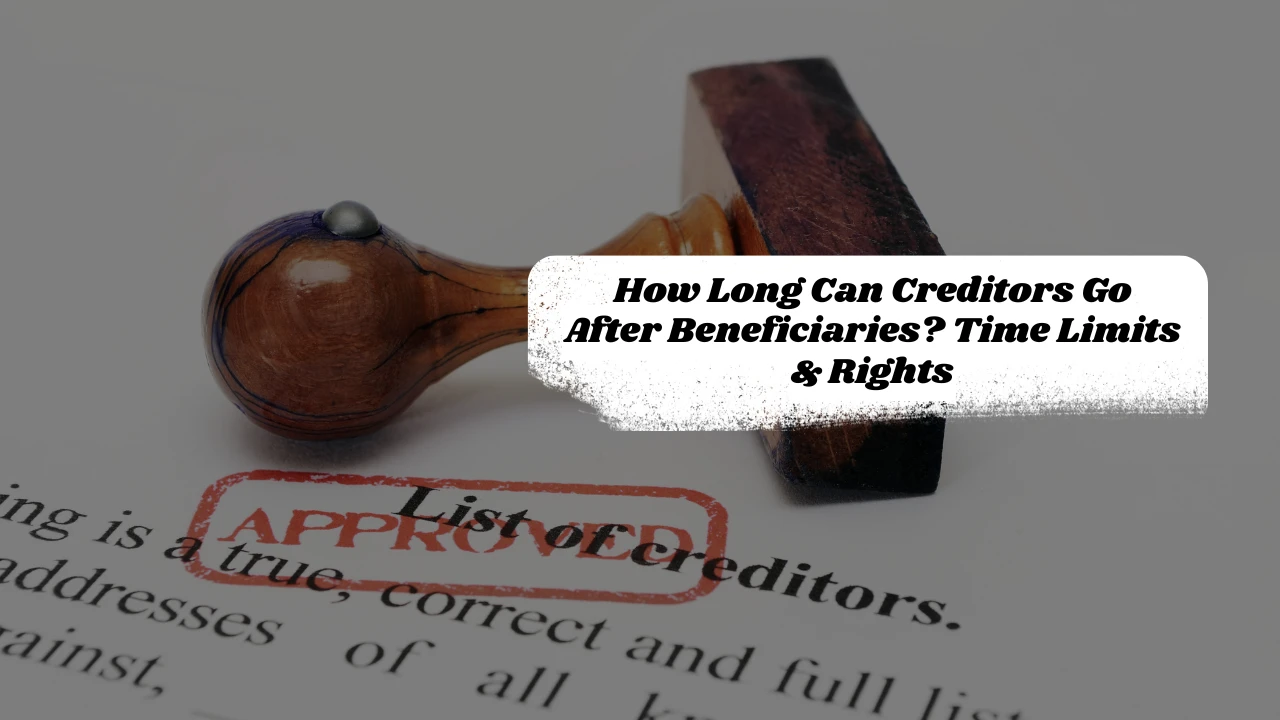When a loved one passes away, it can be an extremely difficult and emotional time for family members Not only are you grieving, but you may also have to deal with the deceased person’s unfinished financial affairs One common question that arises is how long creditors can continue trying to collect on debts after someone dies.
The answer depends on a few key factors
The Claims Process
After someone passes away, their estate goes through a process called probate. The probate process includes identifying assets, paying debts, and distributing inheritances. During probate, the executor of the estate is required to notify known creditors. This allows creditors to make claims against the estate for money owed.
The time period creditors have to make claims varies by state, but is usually between 3-6 months. The executor must publish a death notice in a local newspaper and/or send direct notice to creditors via mail. This “claims period” gives creditors a window to file a claim with the estate.
If creditors do not submit claims within the designated timeframe, they may lose the ability to collect.
Secured vs. Unsecured Debt
The type of debt owed also plays a role in collection rights after death. There are two main categories:
-
Secured debt – Loans or debts tied to an asset, like a mortgage or auto loan. The creditor can repossess the asset if payments stop.
-
Unsecured debt – Debts with no assets attached, like credit cards, medical bills, or personal loans. Creditors cannot directly seize assets if payments cease.
For secured debts, the creditor can repossess the property to satisfy the debt. For example, the mortgage lender can foreclose on the home that secured the loan.
Unsecured creditors must go through the probate process and file a timely claim to have any chance of payment. In many cases, unsecured debts are discharged after death.
Exceptions That Allow Continued Collection
While the claims process limits collection rights, there are some exceptions where creditors may continue efforts:
-
Co-signed loans – If another living person co-signed for a loan or debt, they remain responsible for repayment, even after death.
-
Joint accounts – Debts with a joint account holder allow creditors to pursue the surviving account holder.
-
Community property states – In 9 community property states, a surviving spouse may be responsible for debts incurred during the marriage.
-
Filing an inaccurate probate claim – If creditors miss probate deadlines, some hire debt buyers to file inaccurate claims, hoping the estate pays them. This practice is illegal but still occurs in some cases.
Options for Family Members
The fair Debt Collection Practices Act prevents creditors and collectors from making false claims or harassing family members. If collectors continue contacting you after you request they stop, you can:
- Send a cease and desist letter
- Dispute the debt and request validation
- Report violations to the Consumer Financial Protection Bureau
Getting legal counsel may also help resolve disputes with creditors and collectors after a death. An attorney can review the situation and determine whether collectors are violating laws regarding probate, statute of limitations, and fair practices.
The Takeaway

Check the status of your court case
Don’t have time to go to your local courthouse to check the status of your case? We’ve created a guide on how to check the status of your case in every state, complete with online search tools and court directories.
Other debt settlement resources
We give a factual review of the following debt consolidation, debt settlement, and loan organizations and companies to help you make an informed decision before you take on a debt.
notice of death to creditors, and how long do creditors have to collect a debt from an estate?
FAQ
How long can creditors pursue a debt after death?
Probate involves a court reviewing and validating a person’s will. Creditors must pursue legal action within two years of the date the estate enters probate.
How long is an executor liable for debts after death?
Can debt collectors go after the family of deceased?
If you are the spouse of a person who died, parent of a child under 18 who died, or a personal representative for someone’s estate. Debt collectors can mention the debt to you, and you have the right to learn more about it.
How long do creditors have to make a claim on an estate?
If a creditor does not file a claim within 60 days, they may lose their right to collect from the estate.Sep 28, 2023
